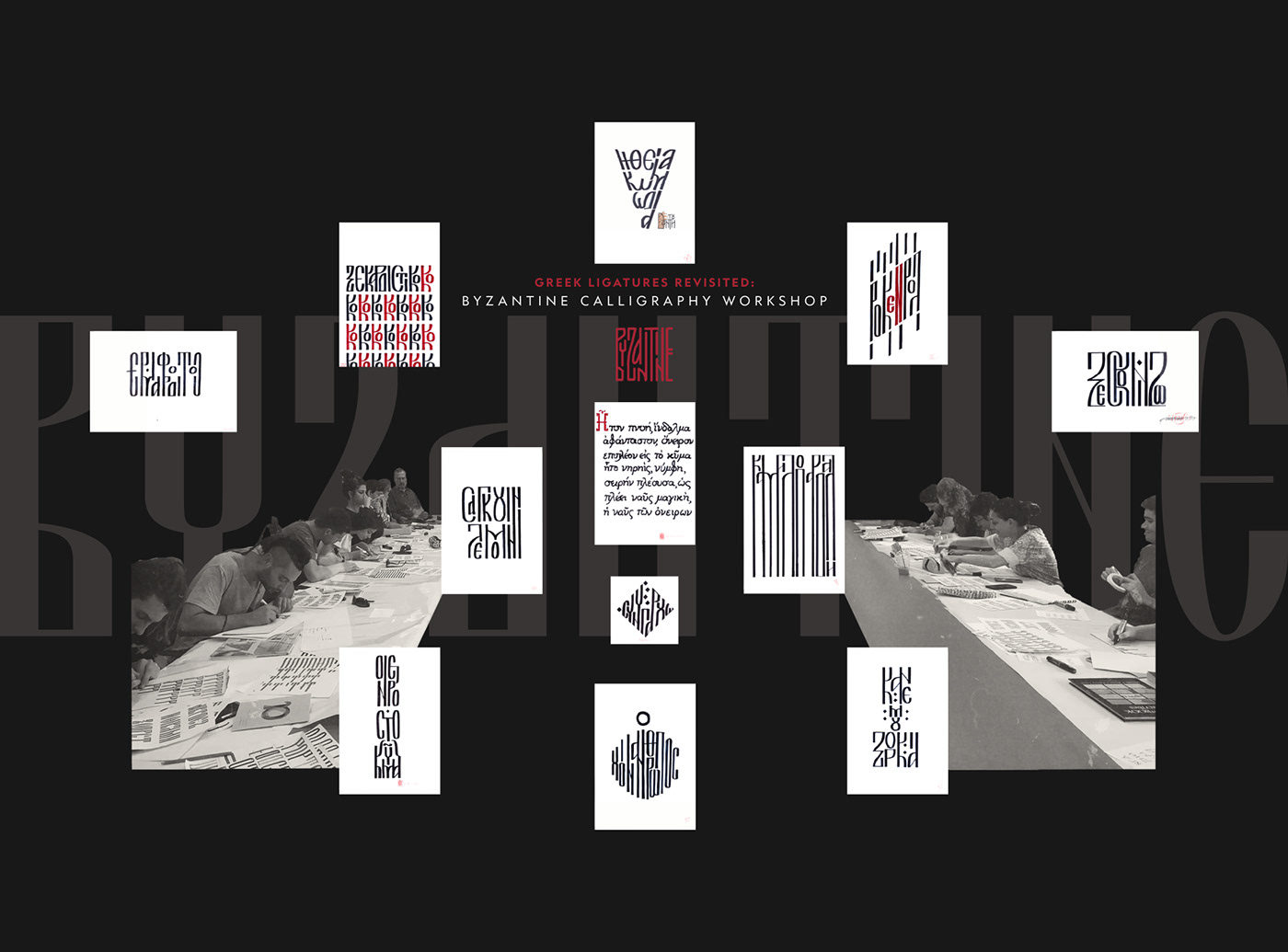
What is Future Text?
Future Text is an academic research platform focused on text-based communication across cultural, international and interdisciplinary fields. It aims to convey individual research within a broader, international context; The project is taking place from December 2018 to October 2020. It includes the organisation of international conferences and seminars and the development of modern didactic materials that will be used in the participating institutions.
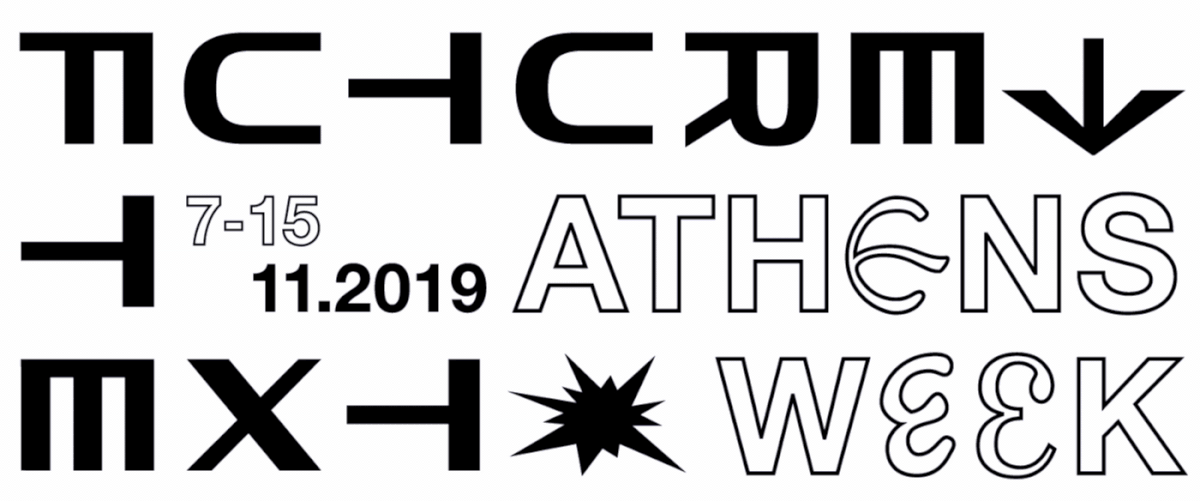
Through time, in a variety of mediums, tools, scripts, the shape and function of the written word is ever changing, inventing new ways to express social and cultural shifts. In today’s environment, the typographic form of the written word is making way for more flexible typographic signs that permit contextual modifications. Historical research may prove to be a valuable source of inspiration for exploring the concept of fluidity and individuality of the typographic form. Such is the case of the greek typographic samples of the renaissance, which incorporated a broad selection of alternate forms, ligatures and abbreviations.
Reflecting on the past while analysing new forms of text-based communication can provide critical thinking and help pose the right questions on current and future technological advances, their design directions and in communication itself.

Greek Ligatures Revisited: Byzantine Calligraphy workshop
As the current technology allows the co-existence of formality and self-expression, long forgotten practices of written communication may resurface through the resurrection of calligraphic practices. The workshop focused on introducing to the participants the skills and modern tools to produce a simplified majuscule Byzantine alphabet. Each student has experimented in forming different compositions including ligatures and thus producing a legible to all, yet unique & contemporary depiction of a word or phrase of their choice.
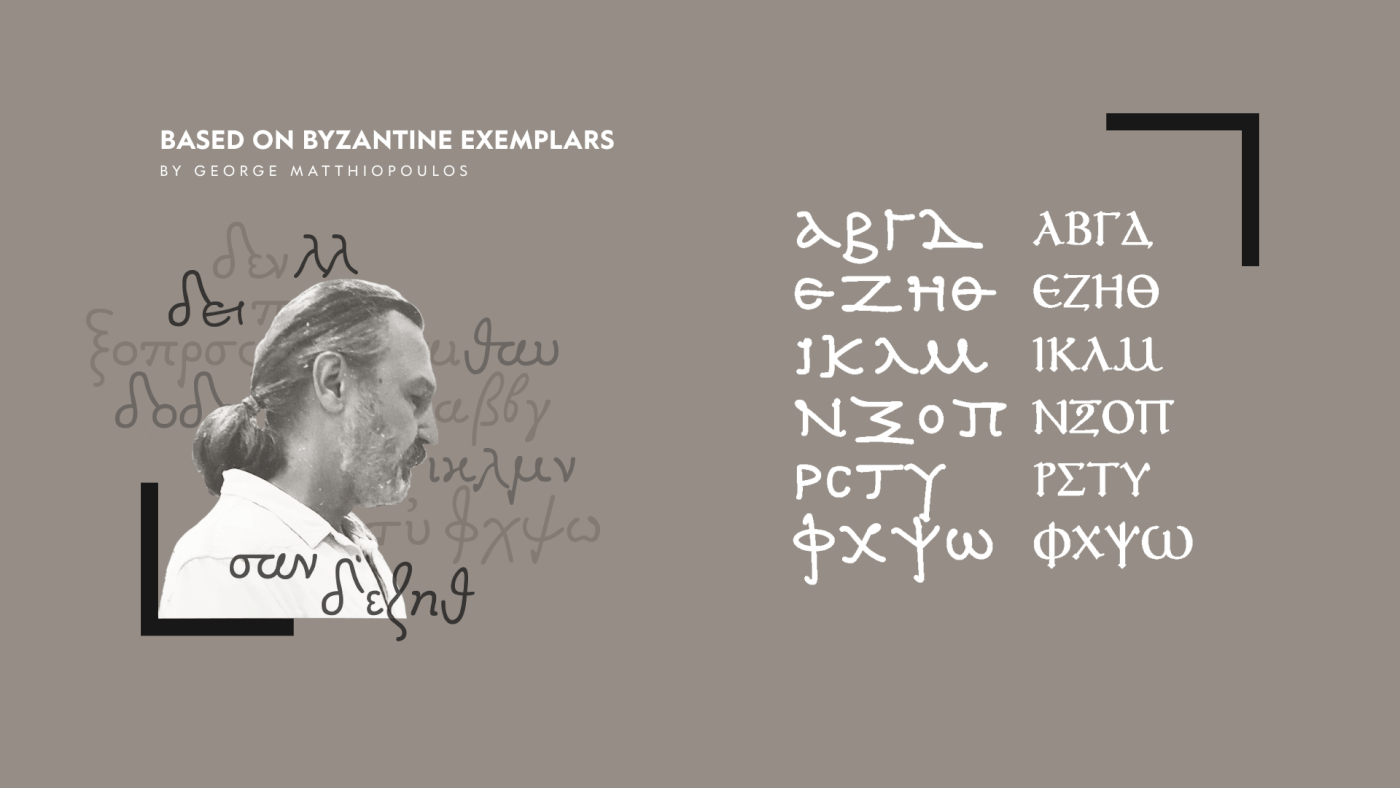
GFS typefaces have been used as a point of reference for the creation of a more simplified exemplar. GFS was founded with the express aim to research the history of Greek typography and the design of historic and contemporary Greek typefaces, which shall bridge the gap between metal and digital technology.
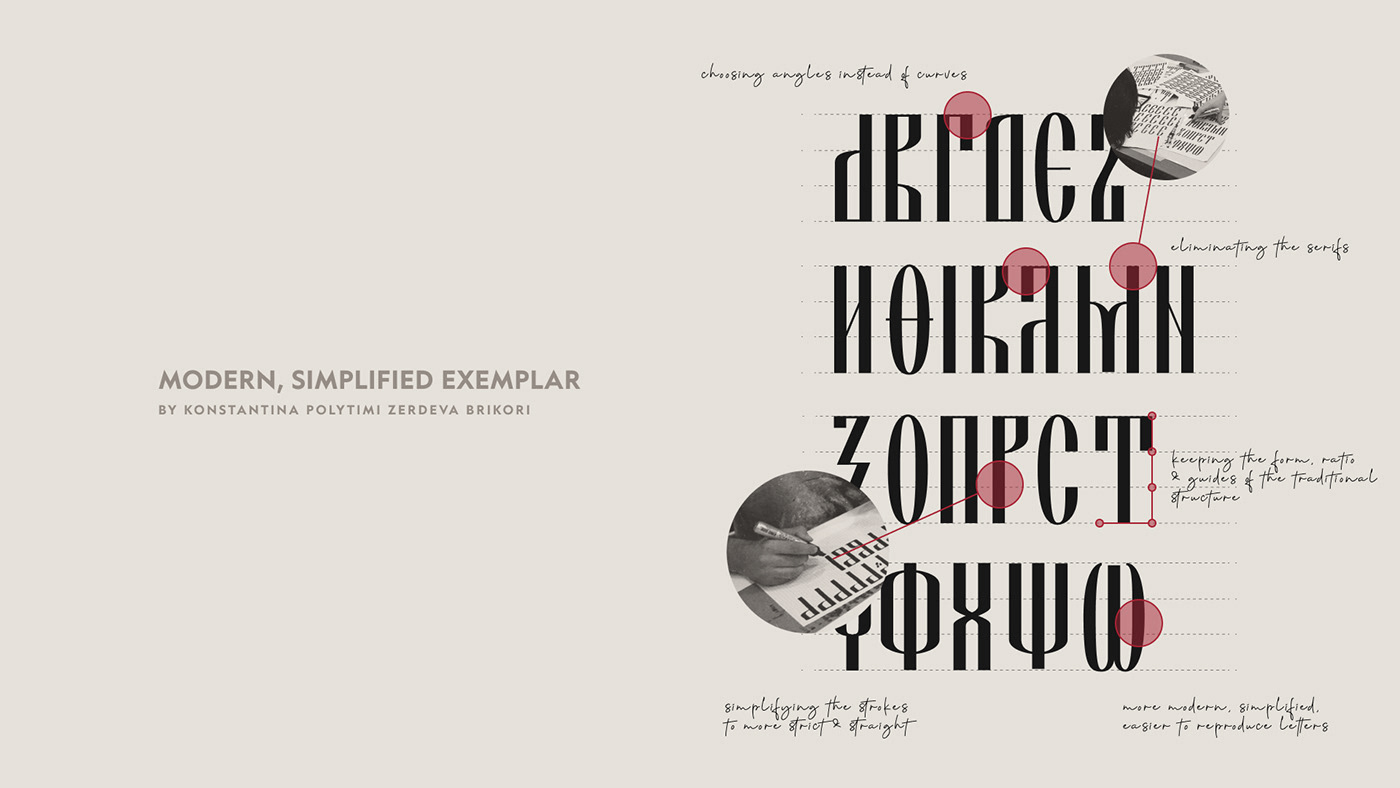
With the above references in mind, the new exemplar designed for the students has the following features:
- Keeping the form, ratio & guides of the traditional structure
- Simplifying the strokes to more strict & straight
- Keeping the form, ratio & guides of the traditional structure
- Simplifying the strokes to more strict & straight
- More modern, simplified, easier to reproduce letters
- Eliminating the serifs
- Choosing angles instead of curves
- Eliminating the serifs
- Choosing angles instead of curves
The students practiced from basic shapes to letters, using the exemplar as a guide, and got familiar with their tools.

The creative process from drafts to final creation was simple and targeted, broken down to 4 steps:
- Selection of word(s) & experimentation with layout
- Practice based on exemplars & customisation
- Selecting & Placing the composition
- Transferring the final composition
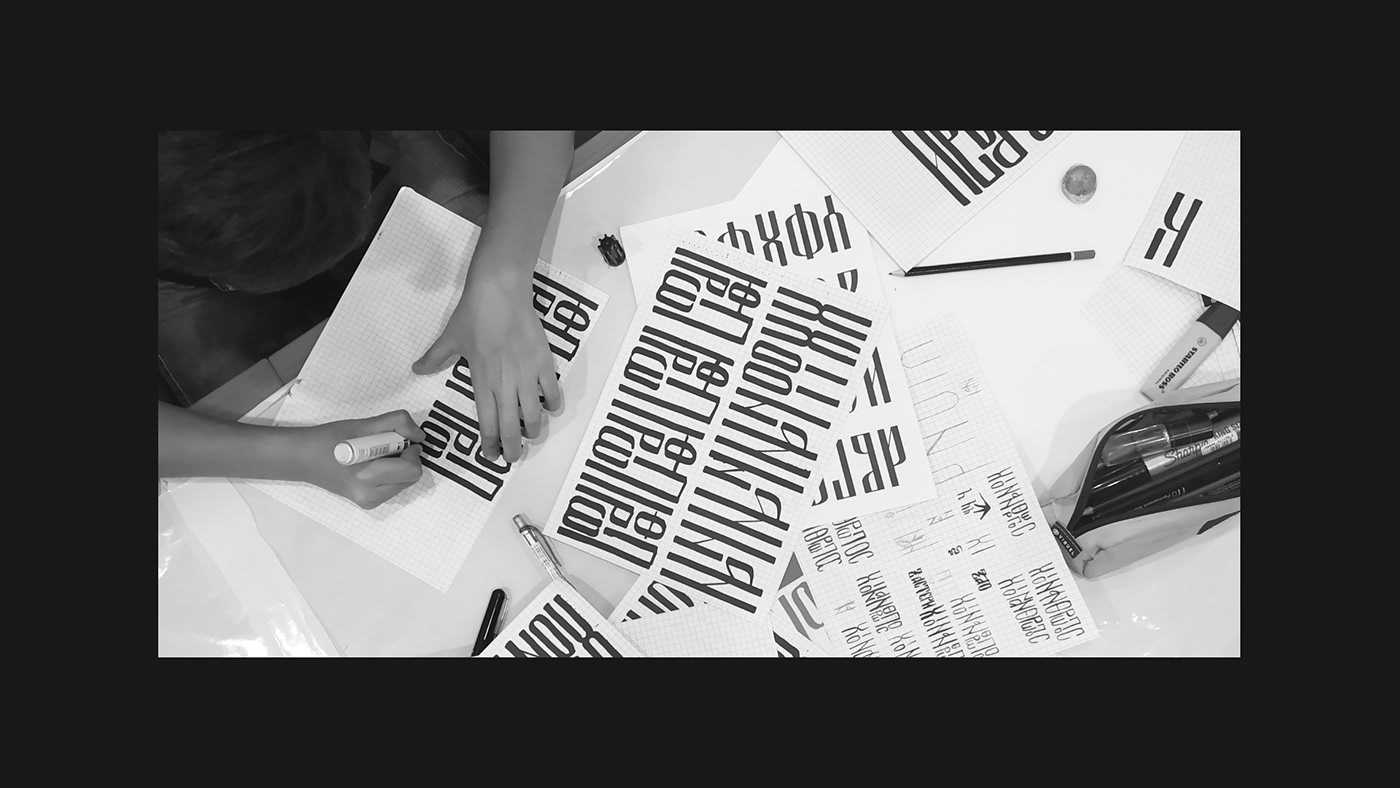

All of the designs had a successful outcome and the students came up with creative and different solutions, producing multiple designs at times.

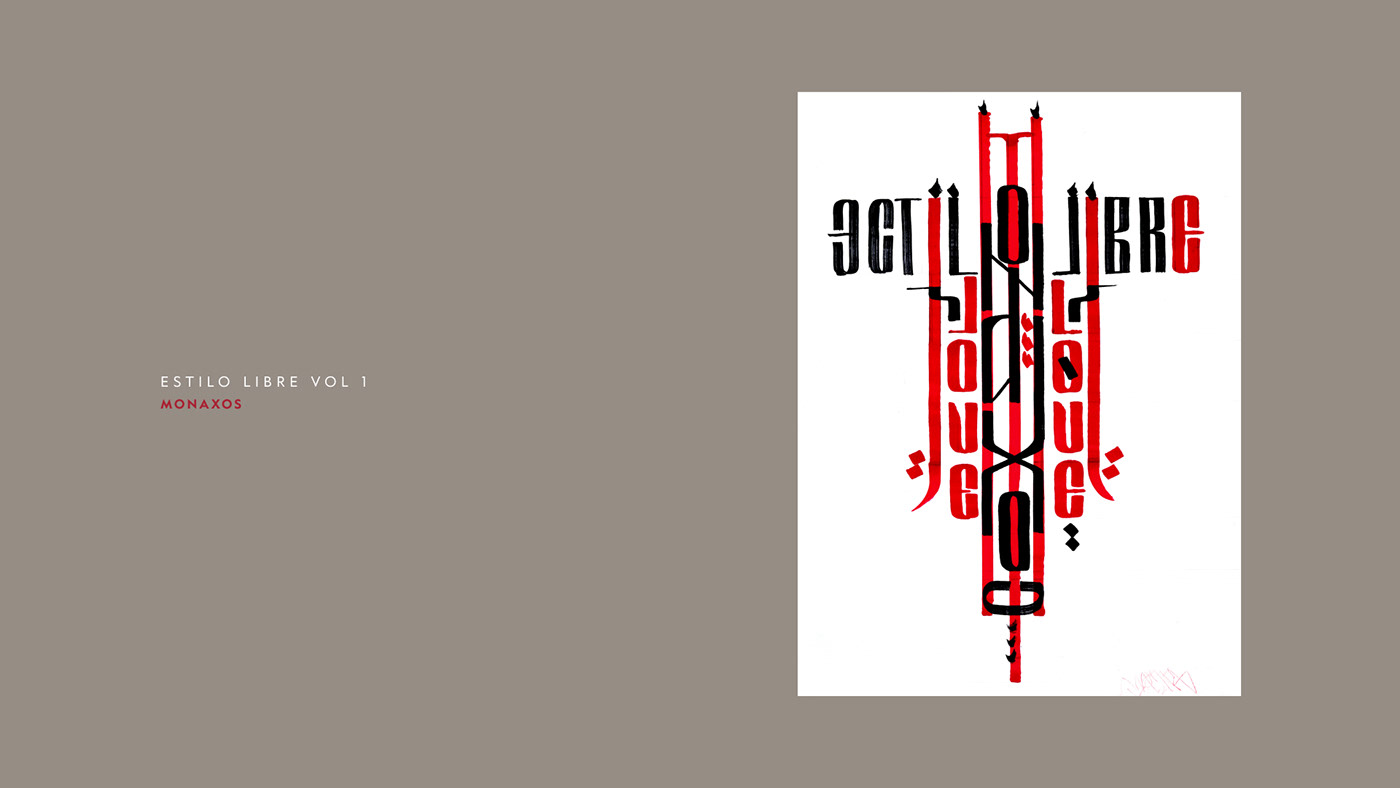
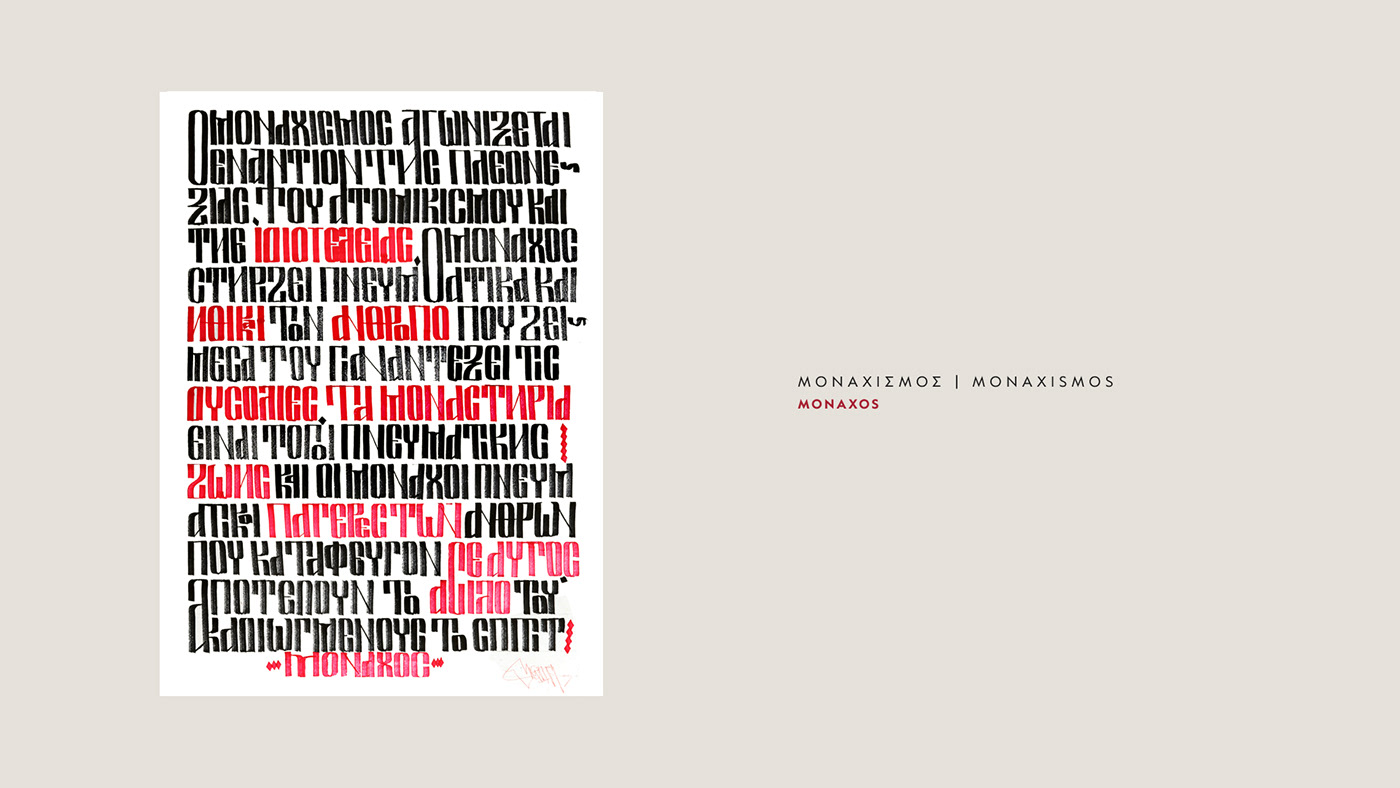

Monaxos Instagram
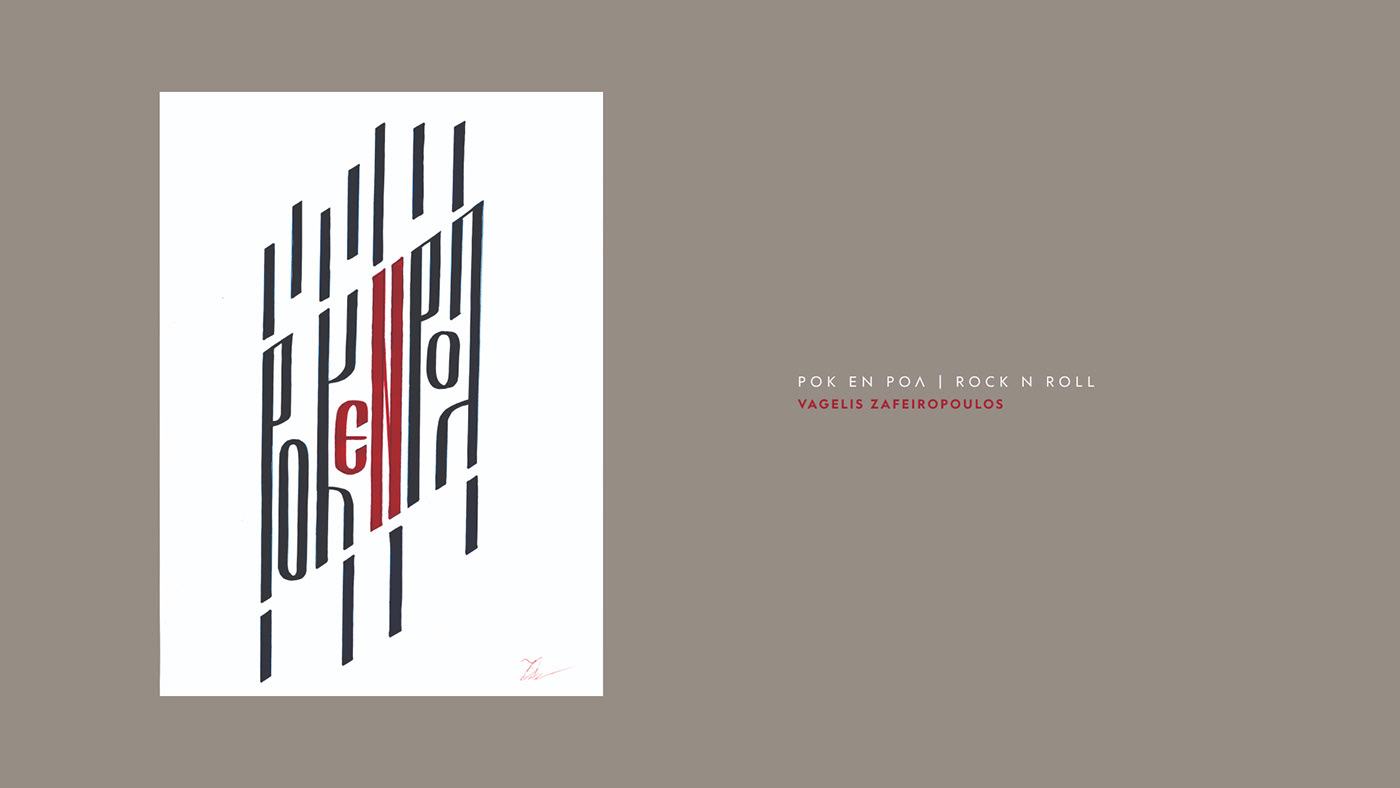
Vagelis Zafeiropoulos Behance

Niki Kasimati Instagram

Konstantina Katsantoni Facebook

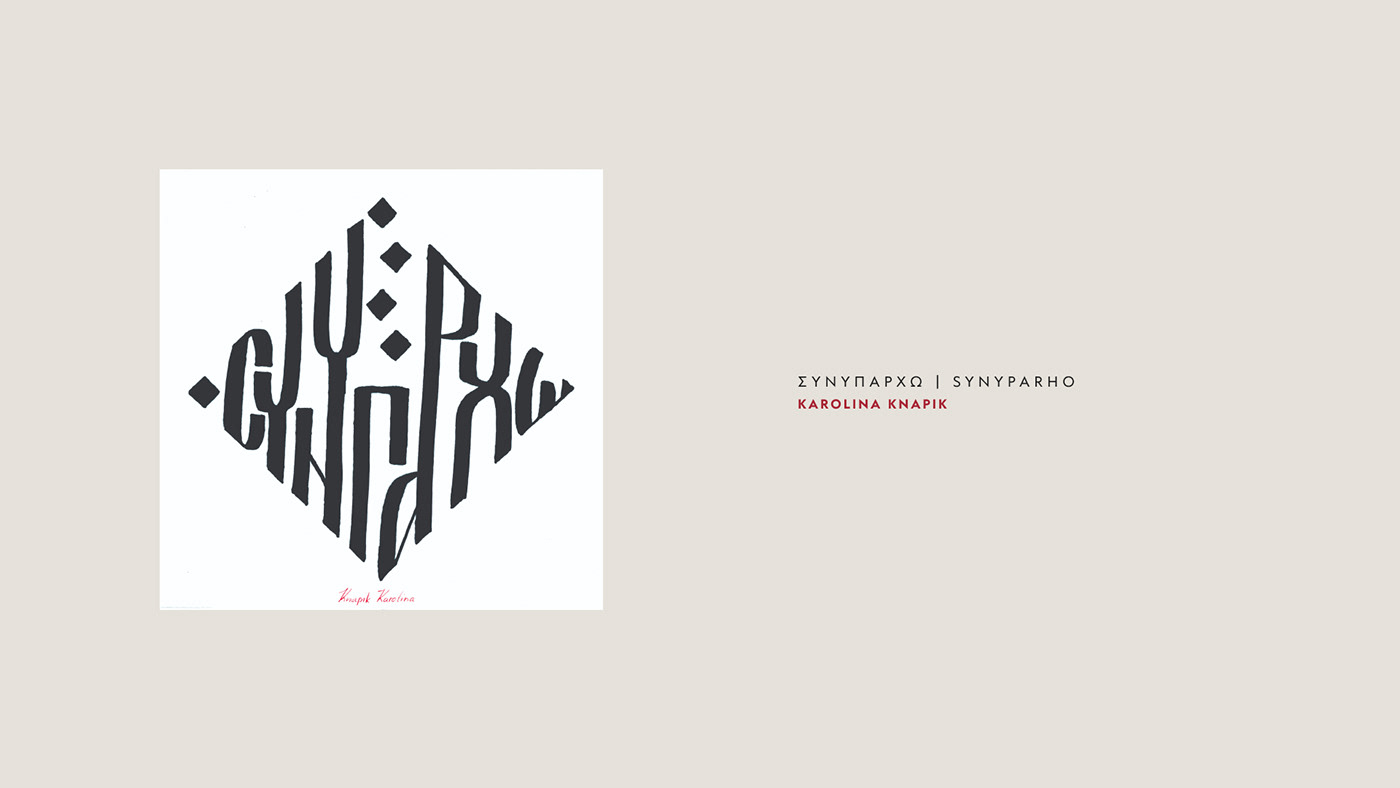
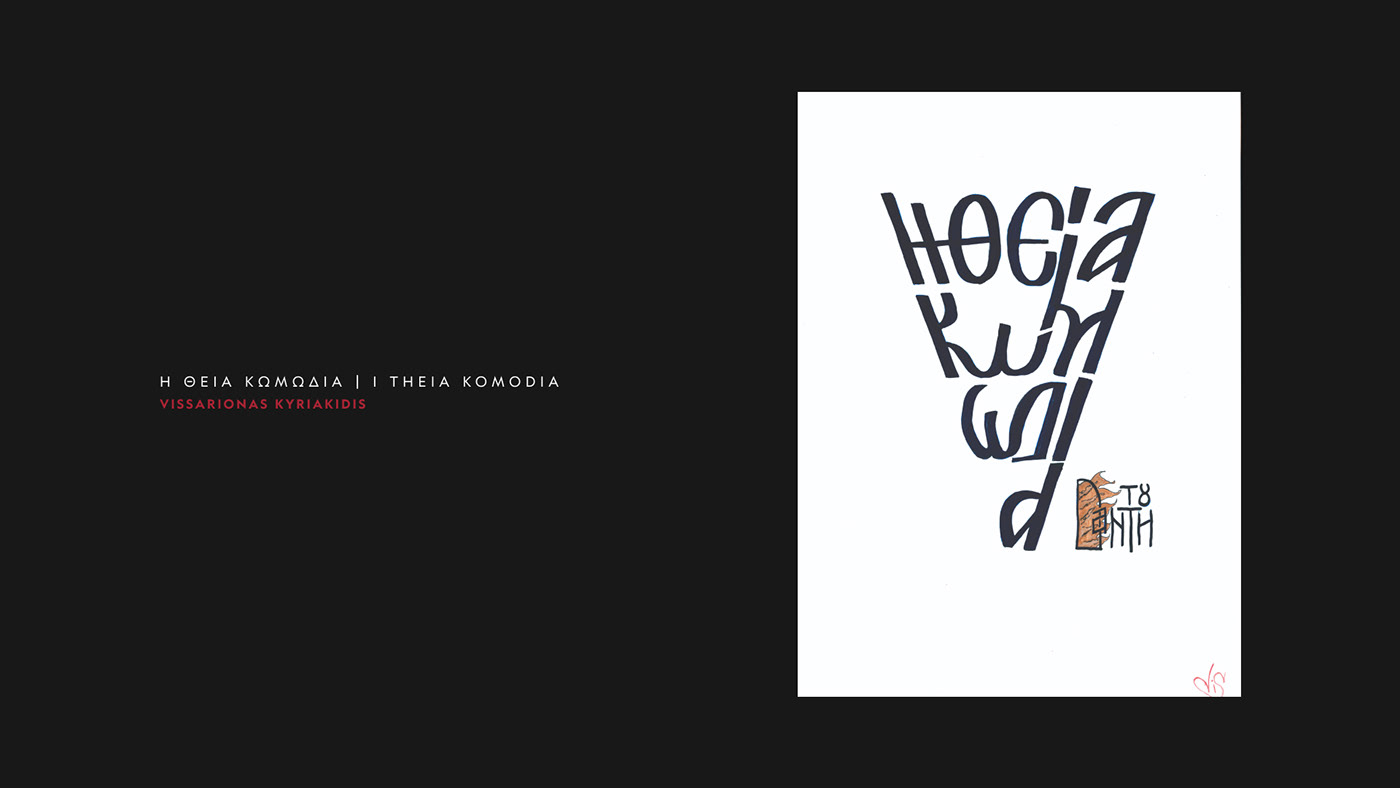
Vissarionas Kyriakidis Instagram

Dimitris Orestis Masouras Facebook
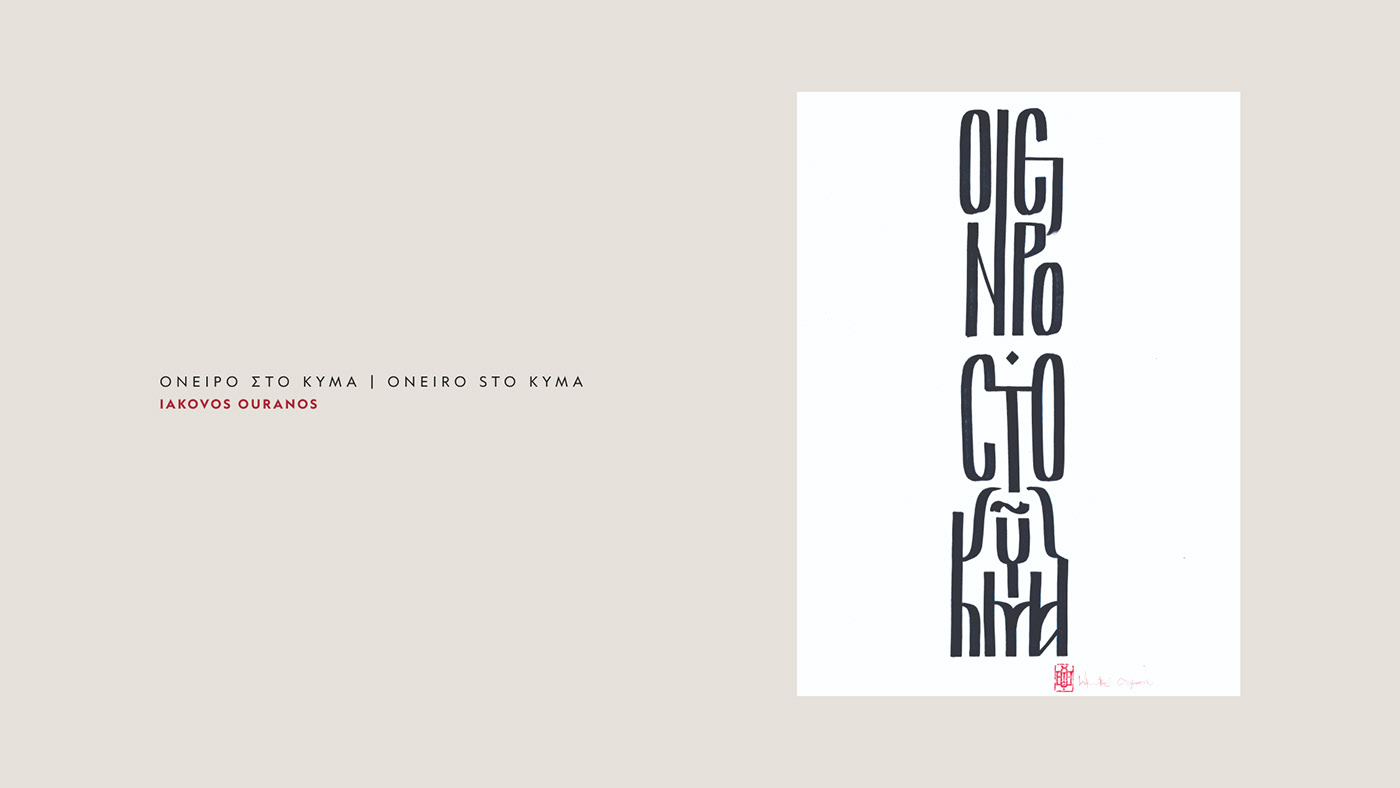
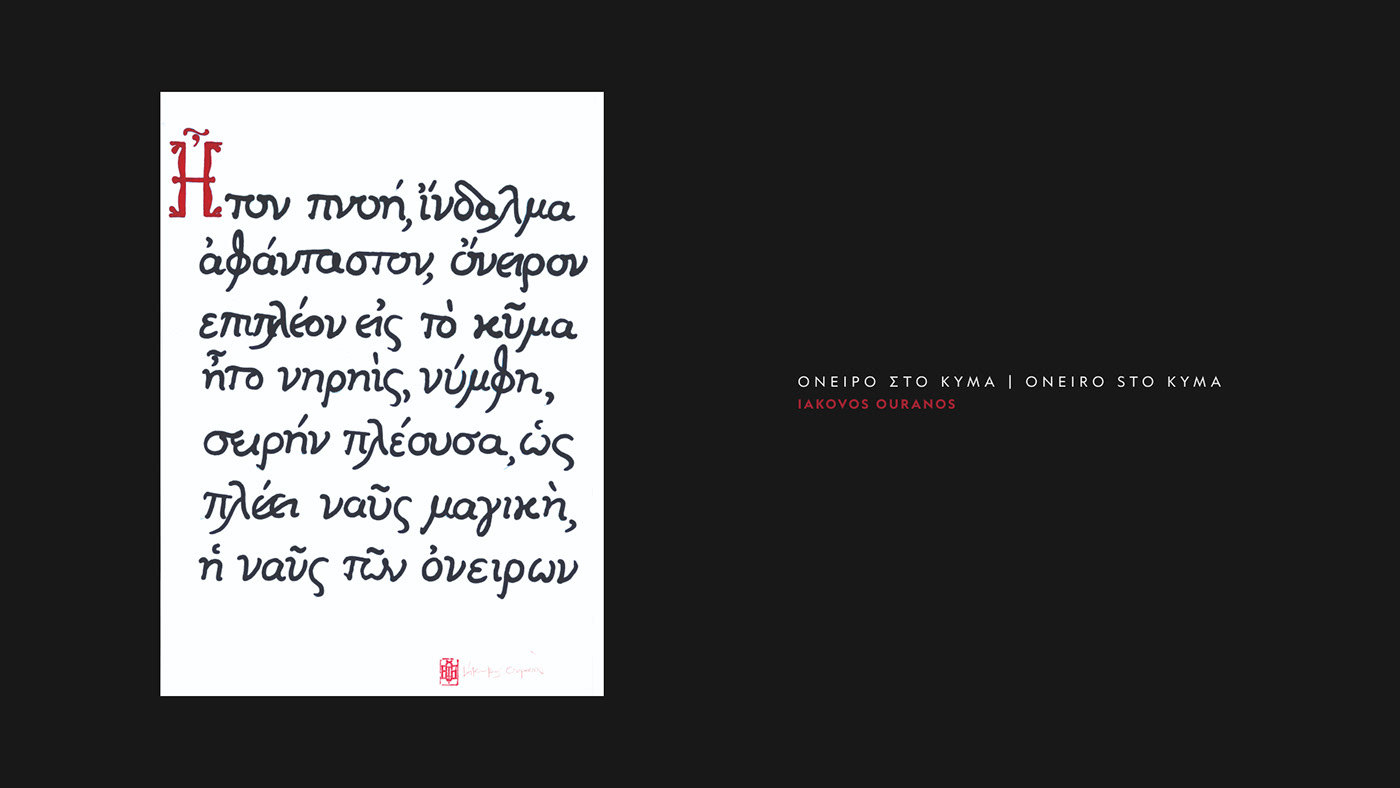





The end of the workshop was celebrated with an exhibition including all of the results of the workshops of Future Text.
As a surprise to the audience during the exhibition, magic papers* were hanged between the artworks for the participants to play and experiment with their knowledge.
*Magic paper is a fast-drying surface, on which one can draw using a brush dipped in water.
As a surprise to the audience during the exhibition, magic papers* were hanged between the artworks for the participants to play and experiment with their knowledge.
*Magic paper is a fast-drying surface, on which one can draw using a brush dipped in water.
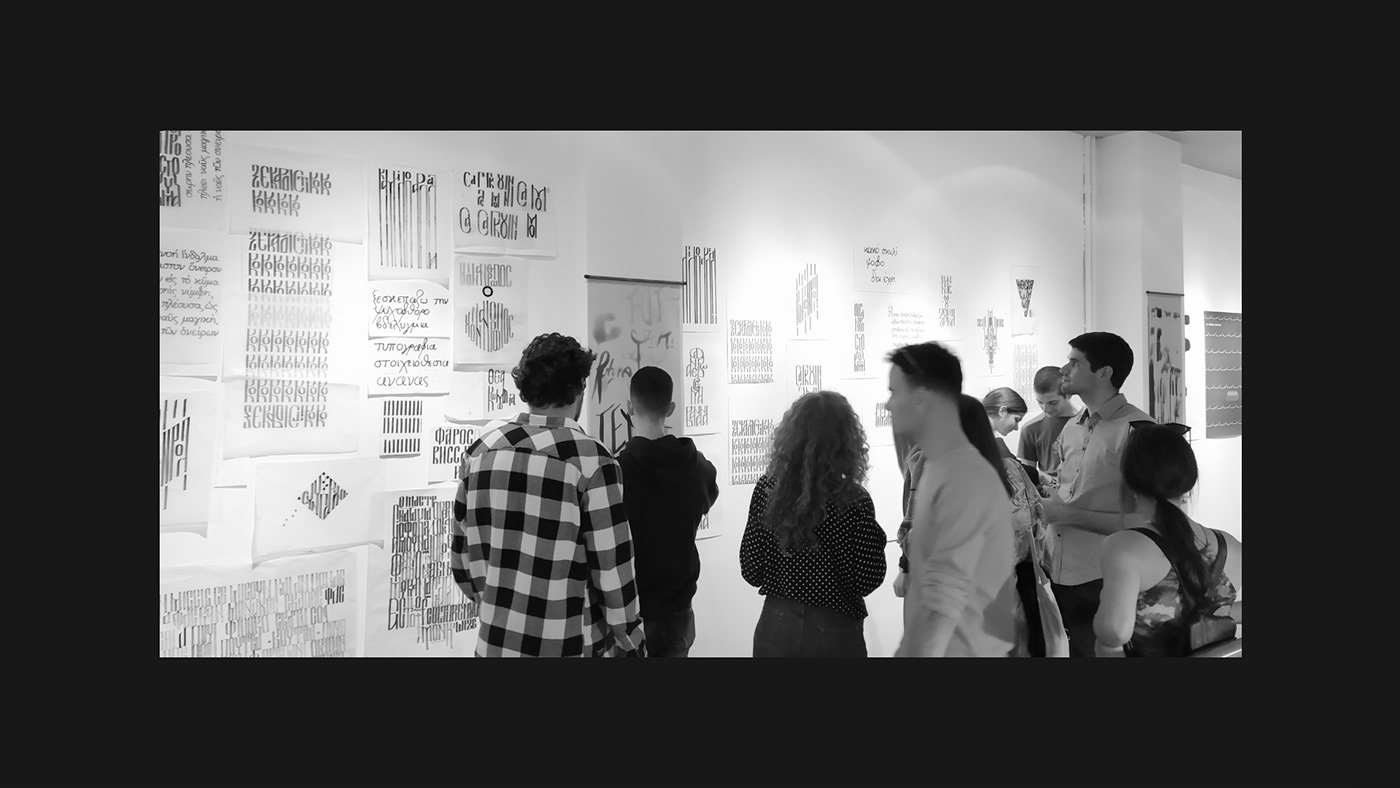
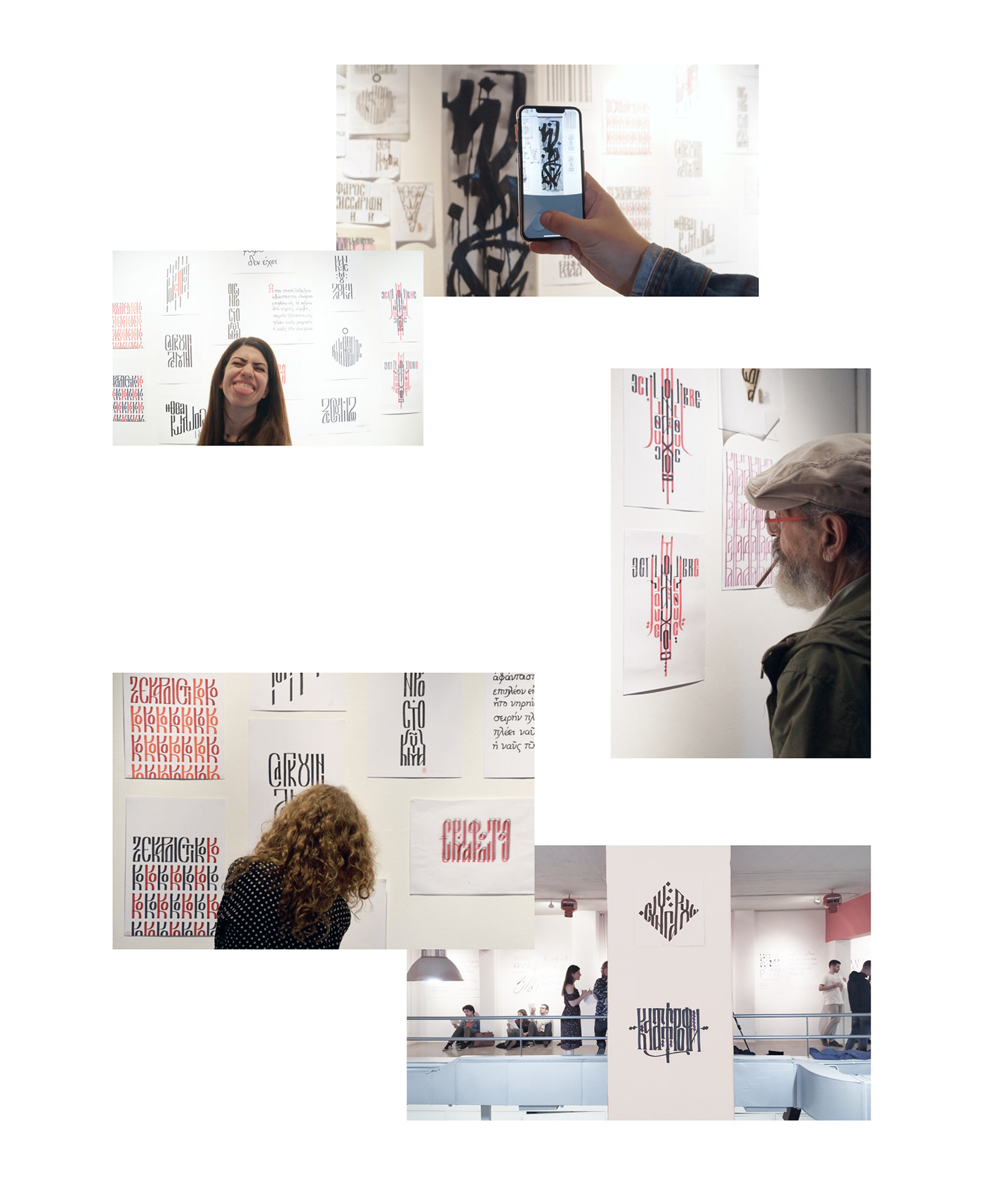
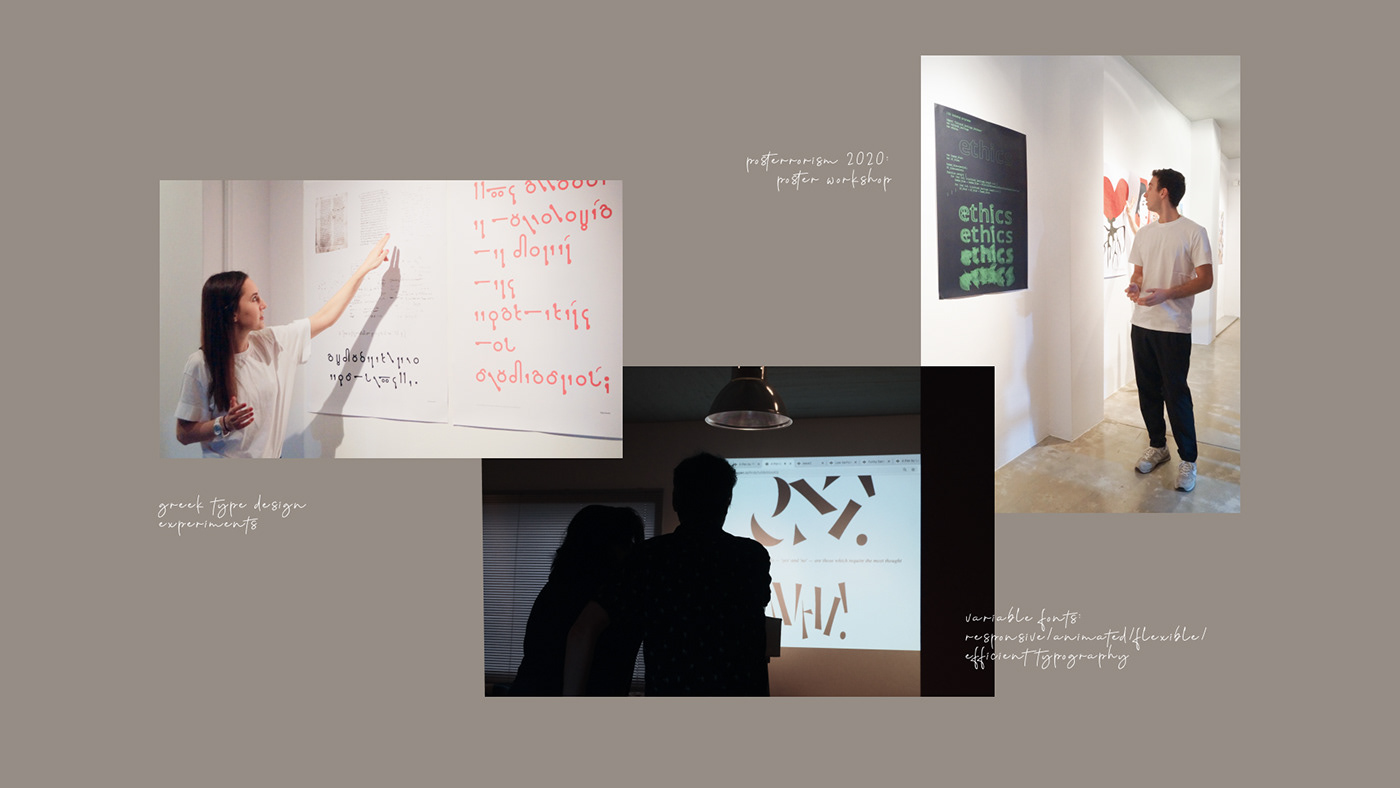
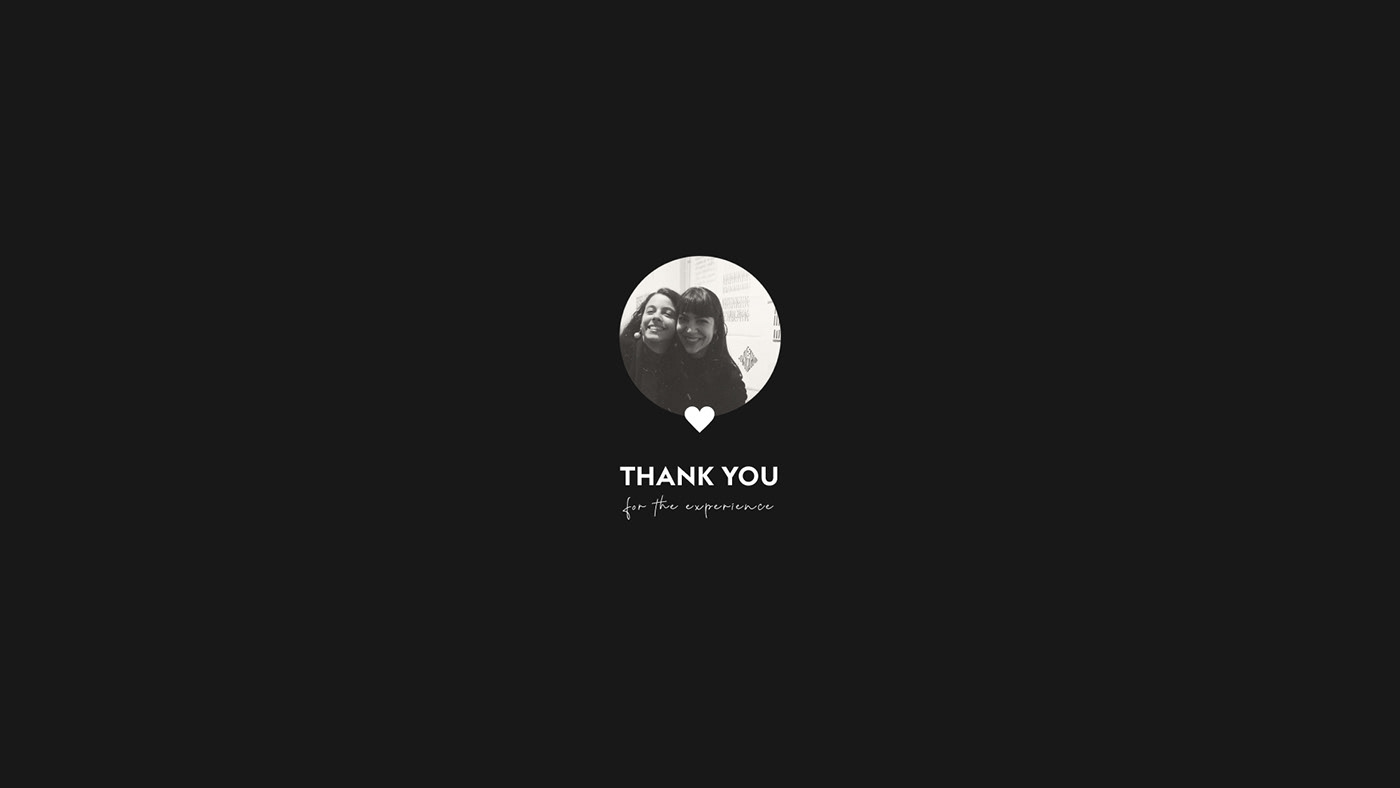
Credits
Future Text & all the people that took part in the creation of this event.
Future Text & all the people that took part in the creation of this event.
Scientific committee / Katerina Antonaki, Eleni Martini, Eva Massoura, George Matthiopoulos
Design team / Eirini Daskalaki, Thanasis Katsougiannis, Ivi Papakosma
Moderator / Ewa Satalecka
Exhibition photography / Karolina Knapik
Posterrorism 2020: Poster Workshop / Tomasz Walenta
Greek Ligatures Revisited: Byzantine Calligraphy workshop / George Matthiopoulos, Konstantina Polytimi Zerdeva Brikori & Marianna Gkaleni
Variable fonts: Responsive/animated/flexible/efficient typography / Irene Vlachou & Laurence Penney
Greek type design experiments: Experimental typography workshop / Eva Masoura
Students / Lydia Papaconstantinou, Maria Tzanaki, Niki Kasimati, Karolina Knapik, Iakovos Ouranos, Monaxos, Aggelos Aggelakis, Anna Paliatsea, Vissarion Kiriakidis, Konstantina Katsantoni, Dimitris Orestis Masouras, Vaggelis Zafeiropoulos
Materials / UNIWA, Sharpie
Special thanks / Georgia Angelopoulos
Special thanks / Georgia Angelopoulos


